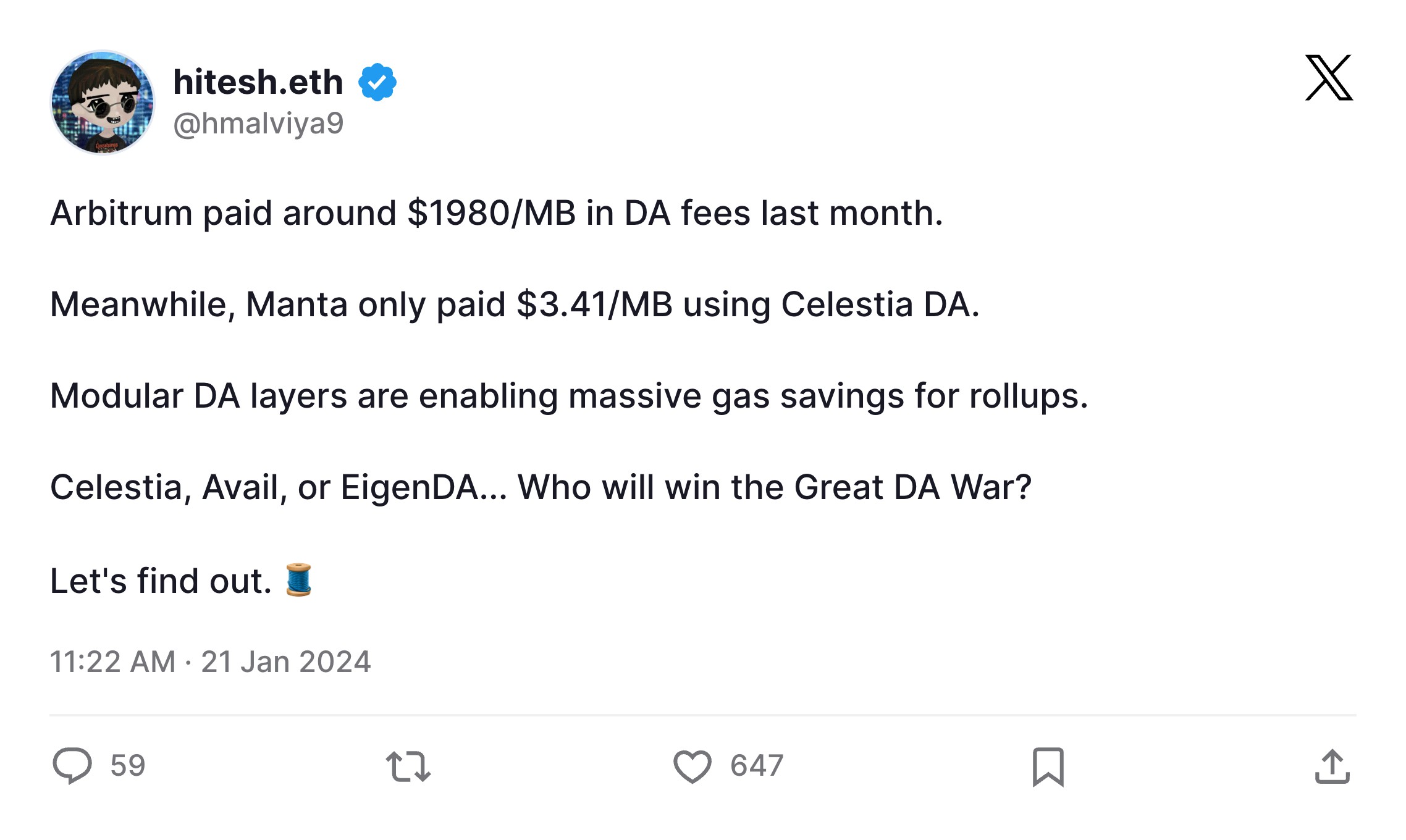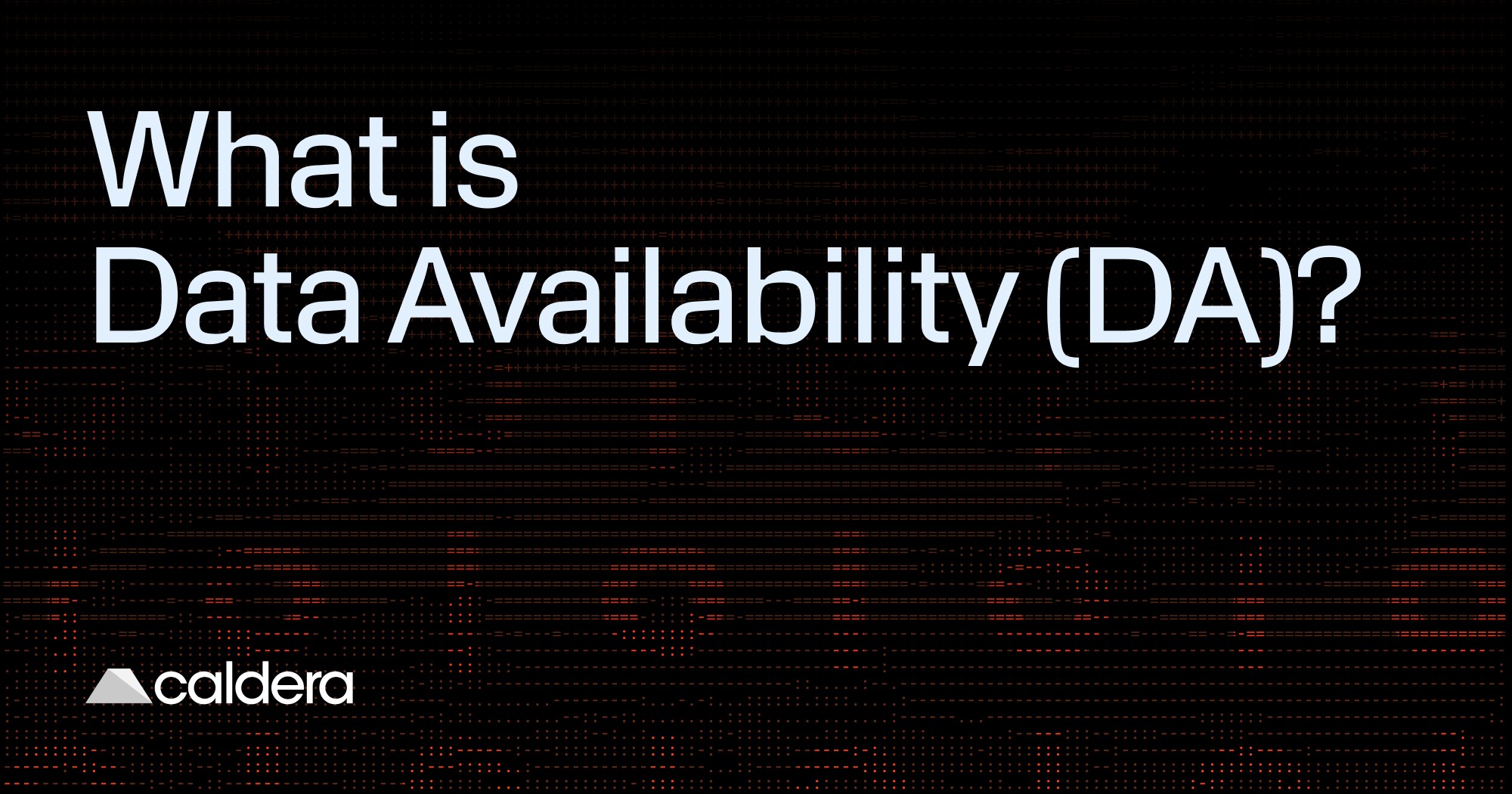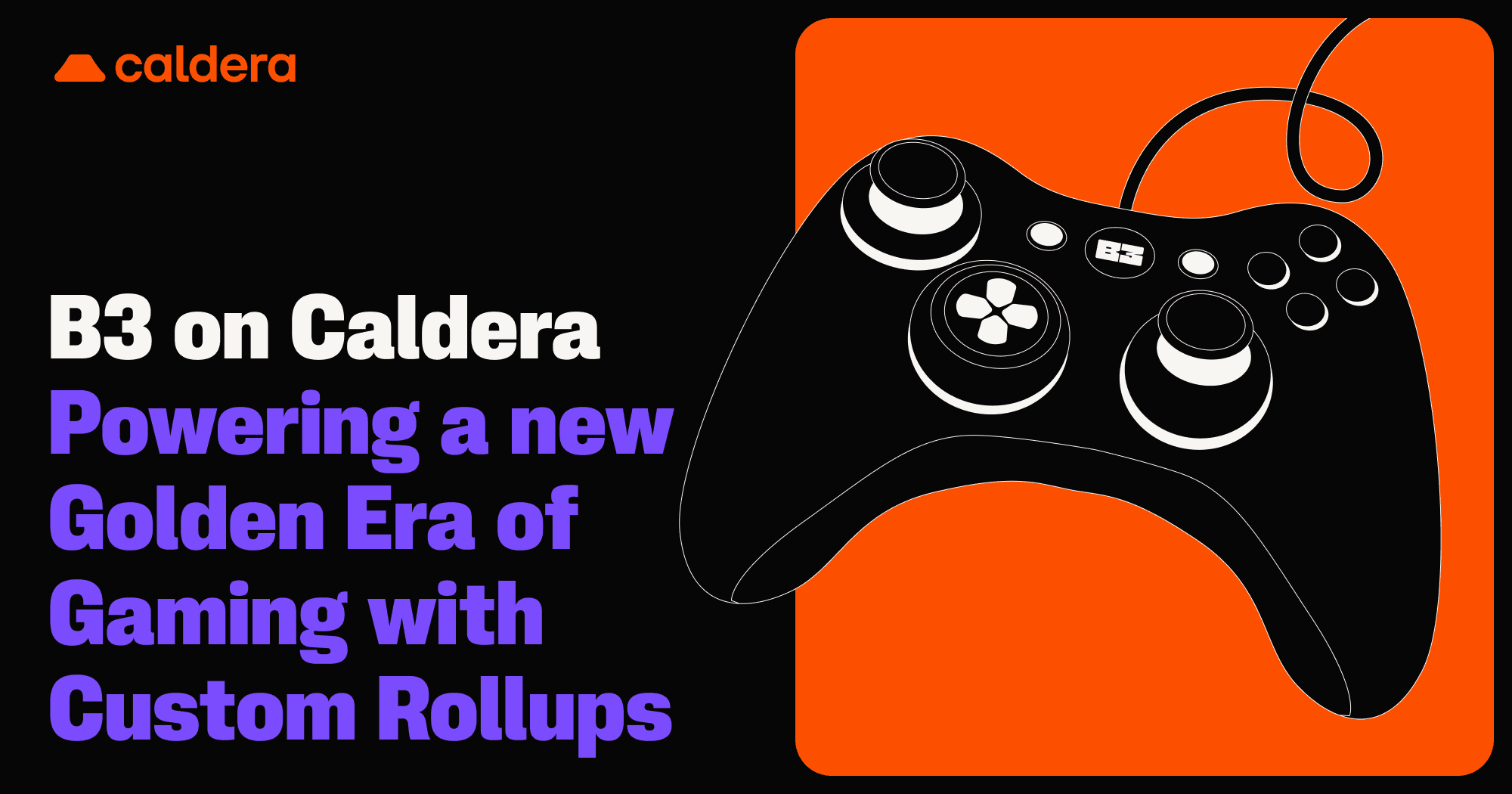What is Data Availability (DA)?
What is Data Availability (DA)?
Data availability (DA) is the mechanism through which every node on a blockchain network verifies that transaction data is correctly included in produced blocks. This process is critical because it ensures all participants can independently validate the blockchain’s history and state, maintaining accuracy and transparency. Without DA, nodes wouldn’t be able to verify transactions, leaving the network vulnerable to manipulation or fraud.
“Data availability refers to the confidence a user can have that the data required to verify a block is really available to all network participants,” according to Ethereum.org.
The primary question that DA solutions aim to answer is whether data has actually been published and made accessible for verification.
Why does data availability matter?
Data availability plays a central role in the scalability and efficiency of blockchain networks. Until recently, DA alone has accounted for over 95% of the operational costs for rollups, acting as a significant bottleneck to scaling on-chain applications. For developers looking to bring high-throughput applications such as games, social networks, or financial systems to the blockchain, the cost of ensuring data availability has been prohibitive.

Alternative modular DA solutions have changed the landscape by decoupling DA from the rest of the execution layer. With these solutions, rollup developers can drastically reduce DA costs while ensuring the integrity and verifiability of their data. Essentially, DA allows nodes to download the relevant data for a period of time, giving them a “roll the tape” moment to verify transactions. While DA doesn’t serve as long-term storage, it provides the crucial function of verifying that data immediately following a transaction, which is indispensable when billions of dollars in value are processed.
This makes DA not just a technical concern, but a financial one. By lowering DA costs, rollups and dApps can scale more efficiently and offer users lower fees.
Should I consider an alternative DA solution for my rollup?
Many Ethereum rollups today post their data directly onto Ethereum mainnet for DA. While this provides security, it also comes with extremely high and often volatile costs, especially when Ethereum is congested with other transactions.

Source: L2Beat
Alternative DA solutions have emerged to address this cost issue, offering rollup builders more control over their tech stack. Projects like Celestia, EigenDA, Avail, NearDA, and Arbitrum AnyTrust are at the forefront of this movement, offering different approaches to DA based on a rollup’s needs and user base.
When considering alternative DA solutions, the decision boils down to a few key factors:
Cost: How much are you willing to pay for DA, and how critical is cost efficiency to your rollup’s success?
Throughput requirements: Do you require high throughput for real-time applications, or are your needs more moderate?
Trust assumptions: Are you comfortable relying on a trusted Data Availability Committee (DAC) to verify data, or do you need a trust-minimized solution like Data Availability Sampling (DAS)?
Latency: Does your rollup need fast DA finality, or can it tolerate slower verification times?
Comparison of Alternative Data Availability Solutions

Each solution has its unique trade-offs. Rollup builders must weigh the costs and benefits according to their specific application needs.
Data availability is at the heart of blockchain scalability. For rollup builders, choosing the right DA solution can unlock new opportunities for growth and innovation by dramatically lowering costs and increasing throughput. Whether it’s leveraging the modular stack offered by Celestia or relying on trusted committees with EigenDA or Arbitrum AnyTrust, the future of DA is flexible and full of choices.
When deciding which DA solution is best for your rollup, consider the balance between cost, trust, throughput, and the user experience you want to provide. With the right DA strategy, your rollup can scale seamlessly while maintaining the integrity and transparency blockchains depend on.
Interested in deploying your own rollup with Caldera? Get in touch with us.
About Caldera
Caldera is one of the fastest-growing rollup ecosystems on Ethereum, empowering web3 teams to launch high-performance, customizable, application-specific rollups. Dozens of leading EVM chains, including Manta, Apechain, Kinto, Injective, RARI Chain and Zero Network by Zerion, use our trusted Rollup-as-a-Service platform to enjoy unified connectivity with rollups across all leading frameworks.






